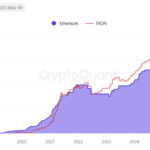The U.S. Securities and Exchange Commission (SEC) has announced a further delay in its decision regarding Canary Capital’s proposal for a spot Litecoin (LTC) exchange-traded fund (ETF). This news comes on the heels of the SEC’s similar postponements concerning other popular cryptocurrencies, including XRP, Hedera, and Dogecoin. Despite initial hopes that the Canary Litecoin ETF might fare differently, the agency has officially set a new deadline for public comments on the proposal.
In a filing, the SEC expressed concerns about whether the proposed fund, which would hold LTC, complies with regulatory standards designed to prevent fraudulent and manipulative practices. Specifically, the regulator is seeking feedback on any new issues that might arise with this proposal that haven’t been addressed in past applications. Canary Capital, led by co-founder Steven McClurg, first submitted paperwork for the fund in October of the previous year.
LTC, with a current market value of $6.6 billion, belongs to the Litecoin blockchain, a platform noted for its open-source nature and code similarities to Bitcoin (BTC). The anticipation surrounding the ETF has been fueled by insights from Bloomberg Intelligence, which indicated that Litecoin may be well positioned to be among the next cryptocurrencies approved for an ETF, especially after Canary Capital reportedly received preliminary feedback from the SEC earlier in the year.
“The changing leadership at the SEC, with Paul Atkins stepping in as the new chair this past April, adds layers of uncertainty. Analysts, such as Bloomberg’s Eric Balchunas, describe this shift as a significant variable in the future of crypto ETFs,”
As the cryptocurrency landscape continues to evolve, the outcome of this application, along with broader regulatory decisions, will be pivotal for industry stakeholders and the future of digital assets in investment vehicles.

Delay in SEC Decision on Litecoin ETF Proposal
The recent developments regarding the SEC’s indecision on the Litecoin ETF have significant implications for both investors and the cryptocurrency market.
- SEC Delays Decision:
- The SEC has postponed announcing a decision on Canary Capital’s proposal for a spot Litecoin (LTC) ETF.
- This delay adds to a series of other delayed applications for different cryptocurrencies, including XRP, Hedera, and Dogecoin.
- Public Comment Request:
- The SEC is seeking public comments regarding the proposal’s compliance with regulatory requirements.
- They are particularly interested in whether the ETF could prevent fraudulent and manipulative actions.
- Market Impact:
- LTC has a substantial market cap of $6.6 billion, influencing investor interest and market dynamics.
- The SEC’s decisions could impact the valuation and trading volume of Litecoin significantly.
- Expert Predictions:
- Bloomberg Intelligence ETF experts had anticipated that LTC might soon be associated with an ETF.
- Past communications between SEC and Canary Capital may indicate that there is regulatory interest in this proposal.
- Change in SEC Leadership:
- Paul Atkins has taken over as SEC chair from Gary Gensler, introducing uncertainty about future ETF approvals.
- Market analysts view this change as a significant factor affecting the regulatory landscape for cryptocurrencies.
“This delay raises questions about the SEC’s stance on cryptocurrency ETFs and highlights the ongoing uncertainty in the market.”
Comparative Analysis of the SEC’s Delay on the Canary Capital Litecoin ETF Proposal
The ongoing saga surrounding the U.S. Securities and Exchange Commission’s (SEC) delayed decision on Canary Capital’s spot Litecoin (LTC) exchange-traded fund (ETF) shines a spotlight on the turbulent landscape of cryptocurrency regulation. Comparable news in the sector reveals both competitive advantages and disadvantages when it comes to the ETF proposals of other cryptocurrencies such as XRP, Hedera, and Dogecoin, all of which have also faced scrutiny from the SEC. These delays not only create waves of uncertainty in the market but also highlight the regulatory challenges faced by crypto assets aiming for mainstream acceptance.
One significant competitive advantage for Canary Capital lies in the recent speculation that the SEC could have distinct plans for their Litecoin ETF, primarily due to earlier feedback suggesting a more favorable outlook in January. This potential optimism stands in stark contrast to other proposals that haven’t generated such a widespread positive reception. The $6.6 billion market cap of LTC may also bolster its case; being the native coin of an established project that mirrors Bitcoin’s fundamental architecture positions it as a safe bet among investors looking for a familiar crypto pathway. However, the strict examination of whether the proposal can prevent fraud and manipulation remains a considerable hurdle that all applicants must clear, which could deter less prepared issuers.
On the other hand, the SEC’s cautious approach also exposes vulnerabilities for Canary Capital. As the regulatory environment tightens under new leadership with SEC Chair Paul Atkins, firms must navigate uncharted waters where past assumptions can quickly become outdated. This regulatory ambiguity ultimately causes anxiety among investors who may second-guess entering the Litecoin ETF space, knowing well the history of delays surrounding crypto assets. Moreover, the hesitance from the SEC could impact the perceived legitimacy and stability of the entire ETF market segment, creating a ripple effect that could stall innovative projects across the board.
Understanding the implications of these developments could benefit various market participants, particularly institutional investors keen on entering the crypto realm through ETFs as a more regulated alternative. However, they must stay vigilant, assessing whether the SEC’s stringent requirements may actually hinder legitimate innovations, or whether the delays will ultimately foster a more reliable and secure marketplace for crypto ETFs. Conversely, these prolonged decision-making processes might also present problems for retail investors, who may feel left in limbo, unable to capitalize on potential growth opportunities while waiting for regulatory clarity.
















